FiiO M17 Music Player Hands-on Review: Flagship Portable Sound
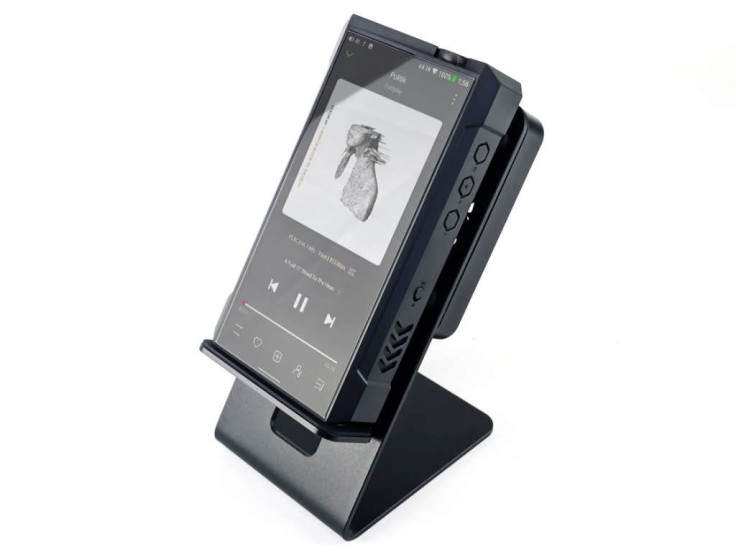
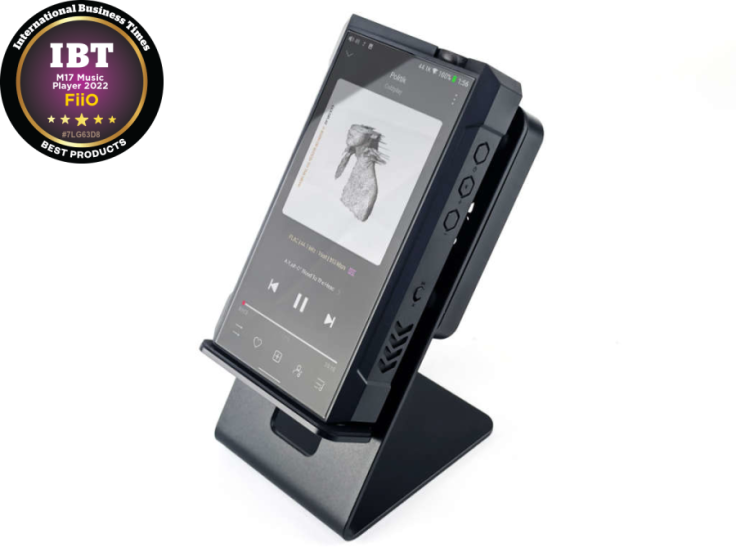
It has been a long time coming since FiiO announced that it was going to release a new desktop-class portable player, and what we now come to have is the M17, FiiO's latest flagship player, the device that promises to combine two categories of sound sources together: the desktop DAC/Amp and the portable Digital Audio Player (DAP).
The anticipation was great in our review office, as it would either be the greatest combination of putting together the best of both worlds, or it would be known as the device that falls short both as a DAP and as a DAC/Amp. Can the FiiO M17 pull off one of the most hoped-for innovations in the audiophile world? Let's dive in to find out.
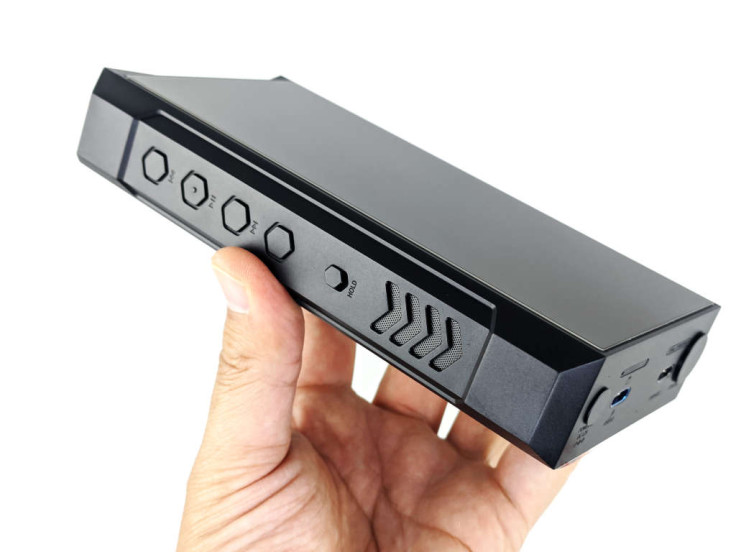
Premium All-Metal Build On Steroids
The M17 is by far the physically largest DAP that FiiO has created, and the company pulled out all the big guns to create by far the most well-built mobile device so far. The latest flagship actually inherits many of the design elements that the M11 Plus LTD has: the hexagon honeycomb buttons, the aggressive angled chamfers on the sides, and the embedded polygon pattern under the glass back.
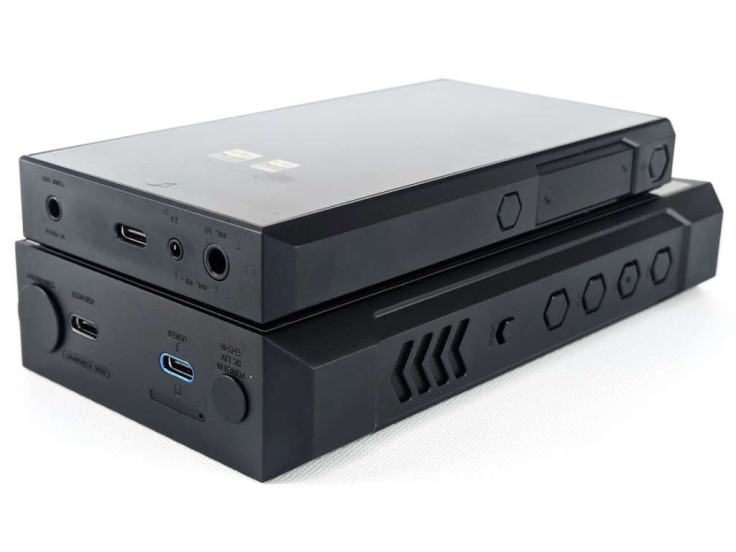
At first glance the M17 seems like a 'supersized' M11 Plus. However upon close inspection, there are many radical changes that it makes, making it worthy to be a desktop DAC/Amp.
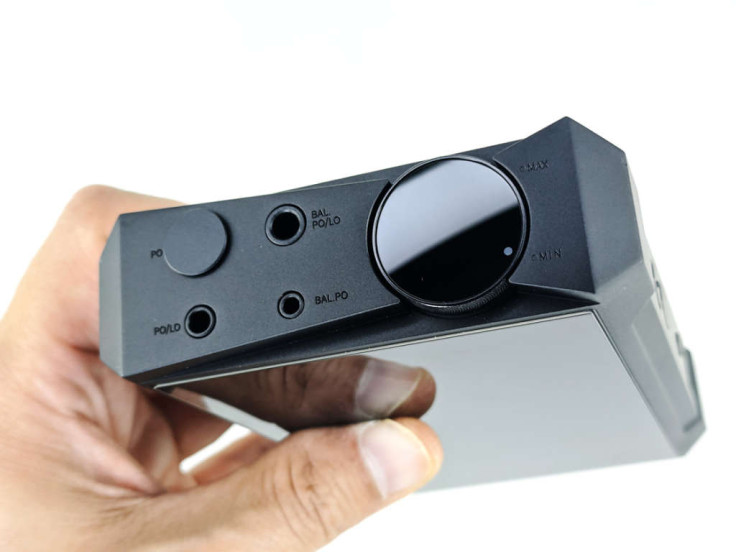
Multiple Audio Outputs and Dual USB-C Ports
The M17 is the first DAP from FiiO that implements a 6.3 mm output in addition to the 3.5 mm standard output, as well as the 2.5 mm and 4.4 mm balanced outputs, giving standard headphones a chance to get a clean and direct output from the FiiO DAP without the need for adaptors - something you wouldn't normally expect from a desktop amp.
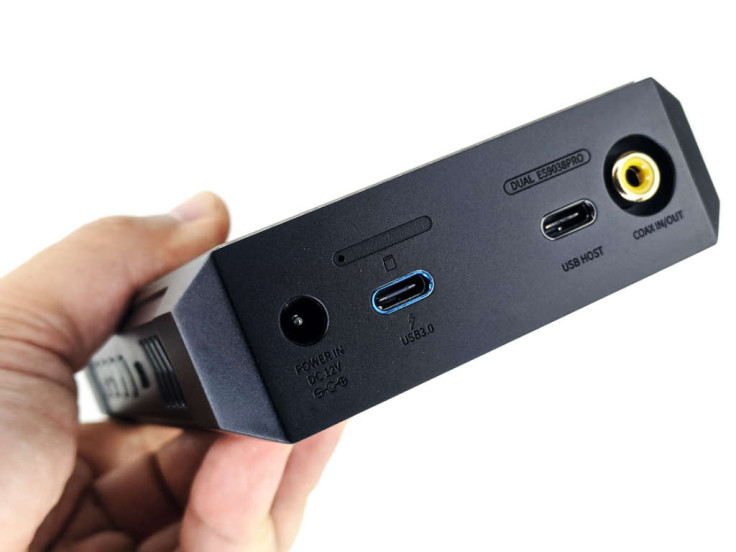
In fact, the extra audio port is not the only added feature: to make it a fully-fledged desktop DAC/AMP, the M17 also has a second USB-C port so that there is one USB host port for using the M17 as a DAC/Amp and another for rapid recharging and USB 3.0 data transfer. Furthermore, there is the RCA female coaxial in/out port, as well as the 12V charging port - which we will cover in the next section.
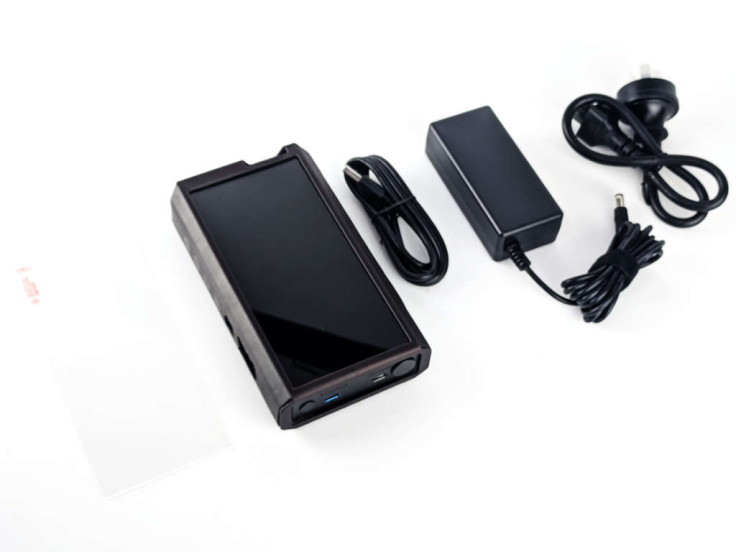
Battery/DC Modes
One reservation that I had about the concept of using a DAP as a desktop DAC/Amp is its internal battery life shortening because like a typical phone, while connected to power, the battery would be cycling between constant drain and recharge. But the team at FiiO had obviously thought about this and they circumvented the issue by creating a Battery and DC mode, which is toggled by a two-way slider on the right-hand side of the M17. The battery and DC mode gives me the assurance that I'm not shortening the life of the battery as I have the choice of when to purely use DC power.
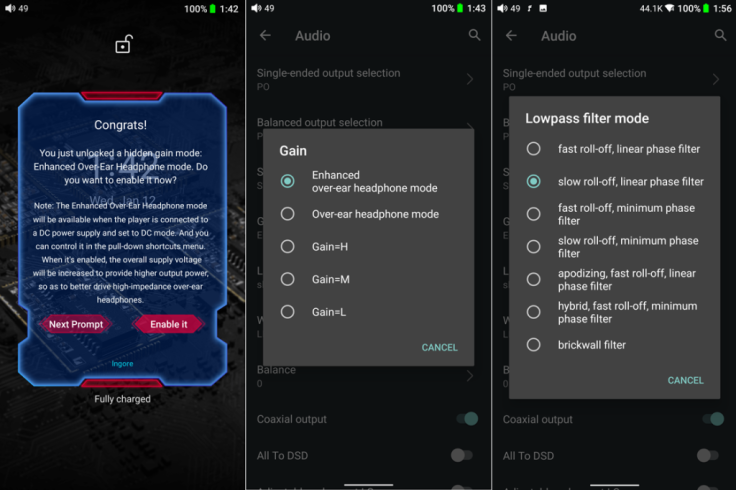
The 12V power also has an additional unexpected function. Once connected to the DAP, a special notification window pops up that informs you that a hidden gain mode - 'Enhanced Over-Ear Headphone mode' - can now be enabled, which is the top level out of the 5 levels of gain available in the M17's settings. This sets it apart from the previous DAPs from FiiO which only offers Low, Medium and High gains. It's clear that the M17 accommodates for more demanding headphones.
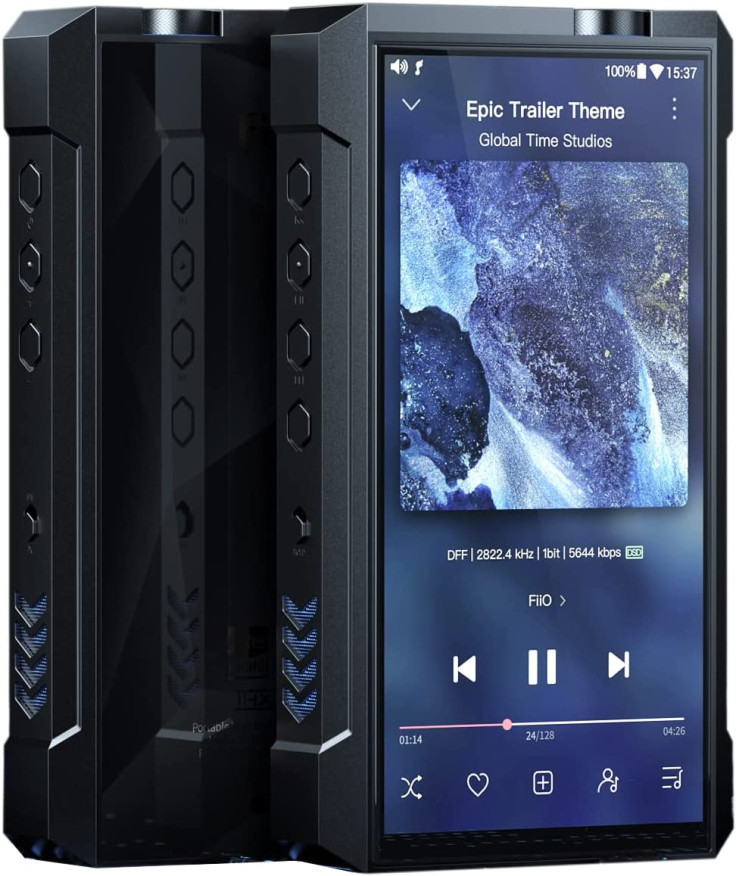
Desktop DAC/Amp Sound from 1/4" Headphone Port
So, how does the first desktop grade DAP from FiiO sound? Compared to more compact desktop DAC/Amps like the Jotunheim from Schiit Audio, the M17 is smaller, which, I must admit, made me doubt how much it was able to drive over-head headphones, not just in volume but also in retaining a refined sound quality.
The result I got was absolutely stunning. There was plenty of power, especially with the Enhanced Over-Ear Headphone mode, with which I was able to open up the Audeze LCD 2-Classic's sound: sounding even richer than before. By running Poweramp in its Android 10-based operating system, I was able to get the most satisfying bass I've ever heard out of the LCD-2C. It's not hard to get the LCD-2C's planar driver to make a loud noise, but I found the M17 to be the first amp I've tested to properly open up its sound. There's a big improvement in the sound dynamics, fully driving the large magnetic planars to give it the huge visceral sound.
ESS DAC Replacing AKM
Audiophiles around the world were panicking last October when the news of the three-day fire at the AKM plant came out, which, having included FiiO, almost exclusively used AKM chips for their DACs. But rest assured that the M17 marks the beginning of DACs using ESS chips instead of the AKMs.
Using two sets of desktop grade ES9038PRO DAC chips and a pair of special headphone amp chips: THX AAA 788+, which was developed jointly by FiiO and THX and which outputs over 200% of the original THX chip, the M17 sound is both energetic and refined.
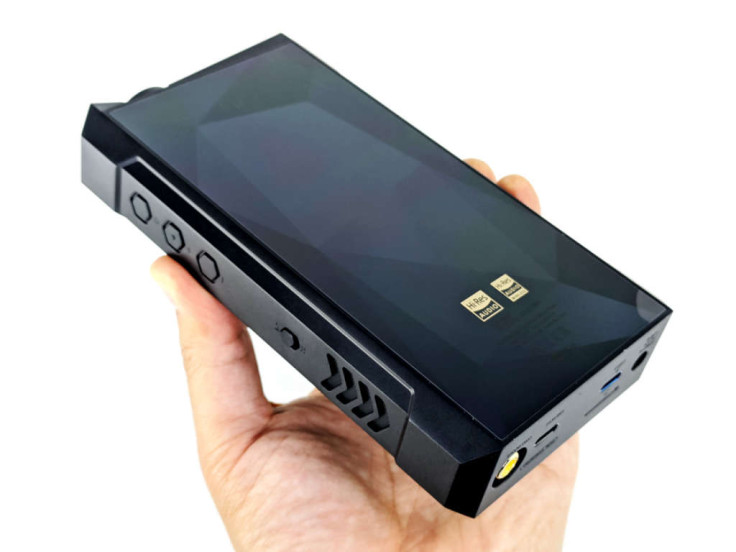
Heat Dissipation Solution: Unibody, Liquid Cooling and External Fan
Another challenge that FiiO must have had to deal with was the heat. Anyone who has owned a desktop DAC/Amp will know that these things heat up pretty fast. And to pack components that heat up in a small tight package requires some serious problem solving.
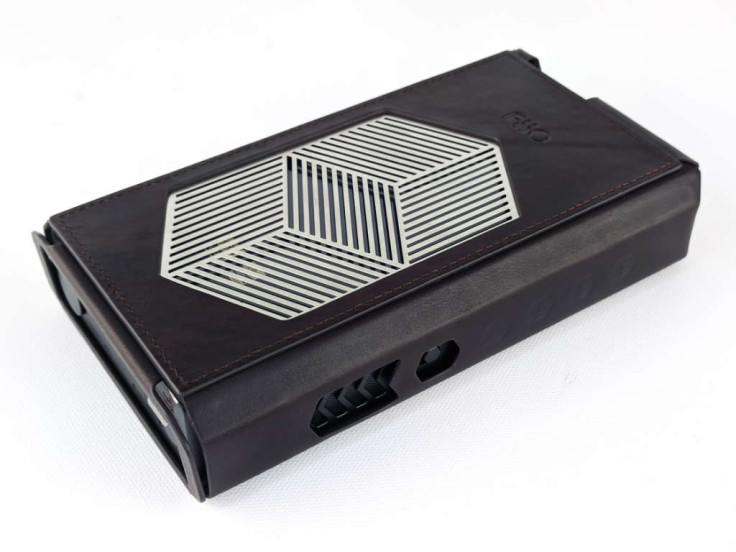
FiiO's solution? First, its aluminum unibody construction acts like a heat sink that spreads the heat throughout the body. Second, its VC liquid cooling (used also in leading gaming mobiles) draws the heat away from the hottest areas. The included leather case stays out of the way of heat dissipation by having an inbuilt metal grill that allows the heat to pass through.
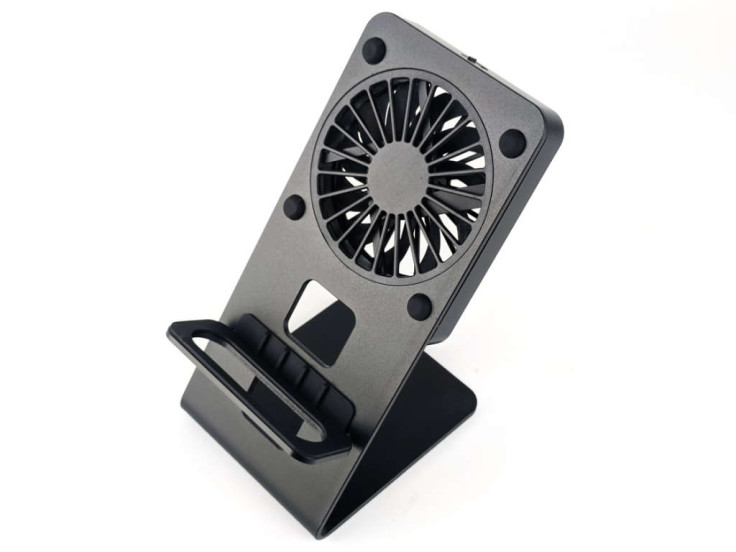
Finally, the aluminum stand, which not only acts like a dock and keeps the DAP upright on the desktop, but has a built-in fan that drives air flow behind the device and keeps everything cool. Working in tandem with the fan, the stand has serious rubber standoffs to maximize the space for airflow - and also keeps the metal stand from any remote possibility of scratching the pristine body of the M17.
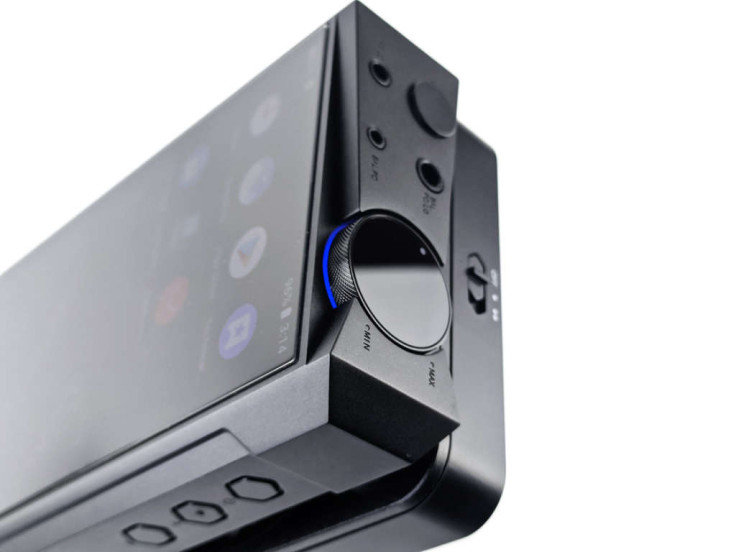
Dual Volume Controllers
To make the M17 truly worthy of being a desktop DAP, like any other desktop headphone amplifier, a large, weighted volume control knob is a must. FiiO crammed a 23 mm diameter one on top of the M17, complete with a knurled side. It might not compare to the large knobs that are usually on desktop headphone amps, but it's definitely the largest volume adjuster I've seen on a DAP.
The M17 actually has two volume controls, so that if the user prefers the up/down volume clickers, the knob can be disabled when using the M17 as a portable player, and vice versa for desktop mode.
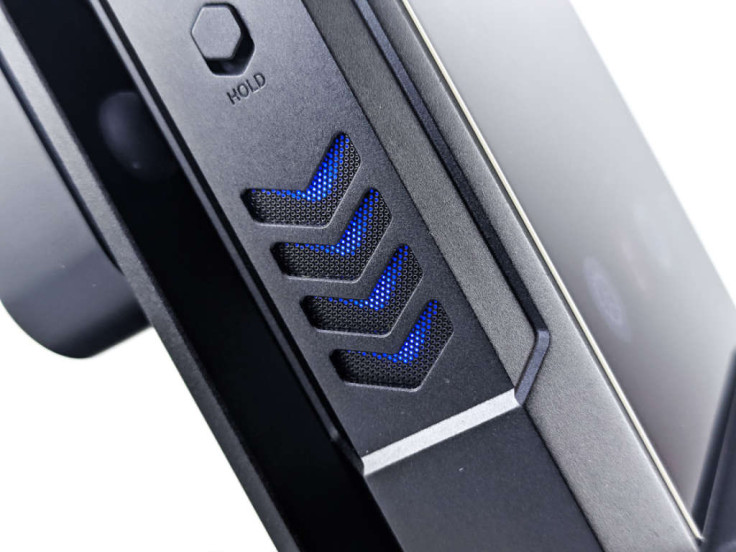
RGB Light works
As icing on the cake, FiiO upped its RGB game by adding LED lighting to the perimeter of the volume knob, as well as on the side vents. Through settings, the behavior of the lights can be fully controlled by the user. You can choose what the colors indicate: charging, or bit rate; and whether the lights are solid, breathing, or turned off altogether to conserve power.
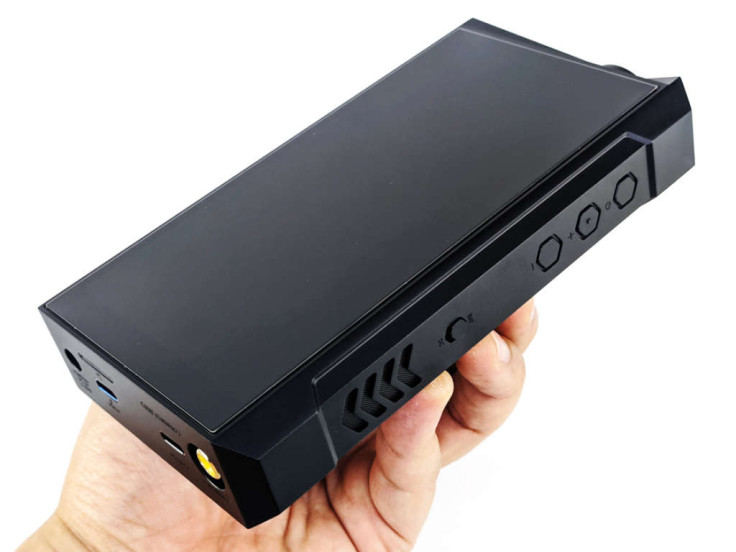
Final Verdict
In the audiophile world, especially when it comes to TOTL audio devices, it's all about specialization. Each device has a specific purpose designed for a specific need.
The long-awaited FiiO M17 digital audio player breaks the mold in the sense that it's the first device that qualifies both as a desktop and also a portable device. For those who want a truly top of the line audio experience, but don't want to be weighed down by large bulky DAC/amps in moving between apartments, or between hotels, or even between flights, the M17 is the best chance you have to get a desktop amp grade sound out of your over-head headphones while moving about.

For it's build quality, spectacular sound quality as well its ability to drive overhead headphones that other DAPs would struggle to, providing a true desktop amp experience, we're awarding the FiiO M17 the IBTimes Best Product badge.
Sam is a production engineer turned tech writer who specializes in seeking out gadgets that enhances productivity while still looking sharp. This is a contribution to an ongoing IBTimes review series on gadgets for Business Travelers.




















